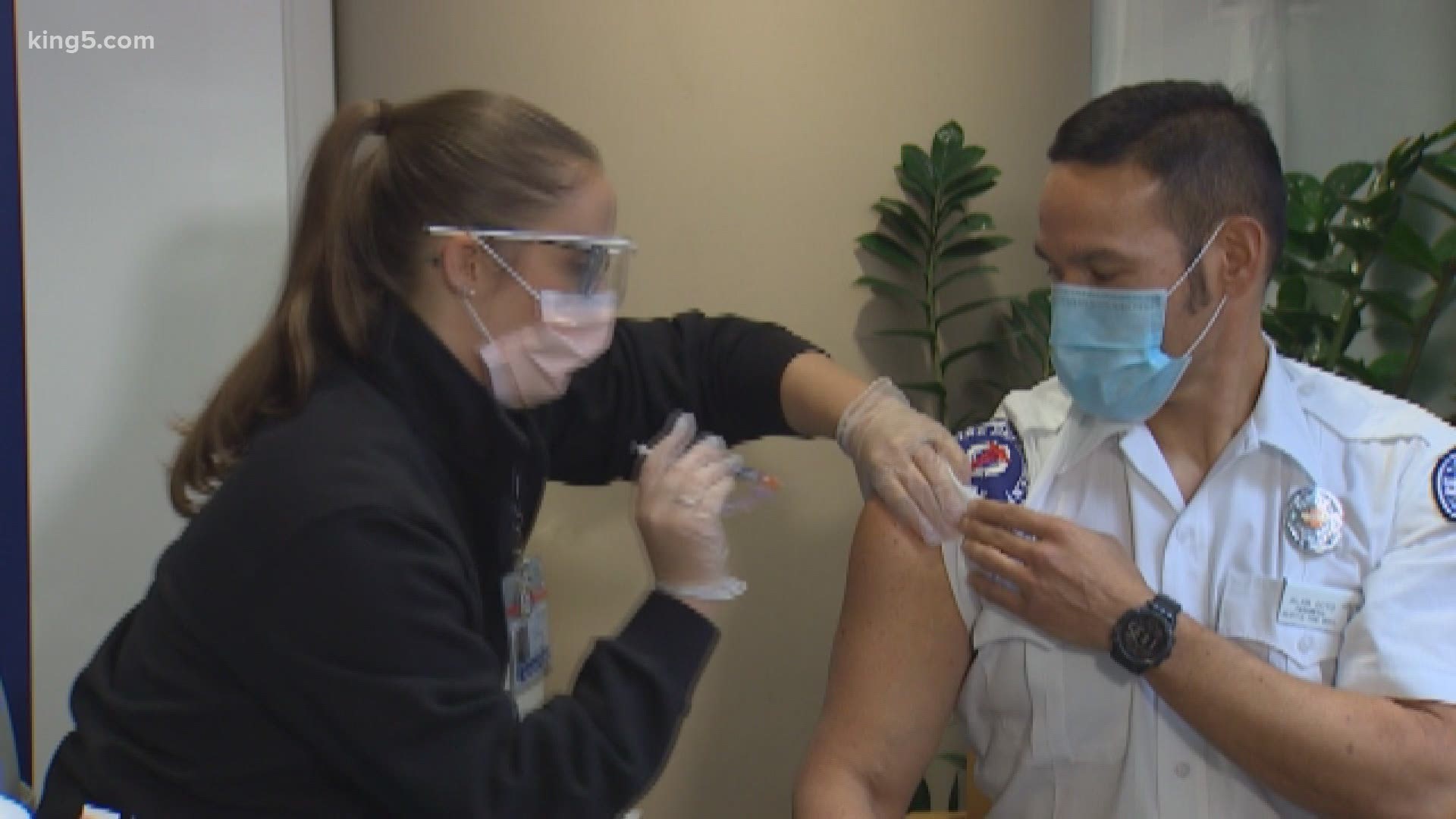BELLEVUE, Wash. — Moderna says it's ready to ship doses of its COVID-19 vaccine around the country following the Food and Drug Administration giving emergency authorization for the vaccine on Friday.
It's good news for frontline healthcare workers who are anxious to get the vaccine at hospitals and care facilities across Washington state.
There was a hiccup in the first week of the rollout of Pfizer's COVID-19 vaccine when Gov. Jay Inslee announced Thursday that Washington’s vaccine allotment would be reduced by 40% next week and said he hoped it was due to a “communication glitch.”
Inslee tweeted an update Friday and said there’s “no indication” that more reductions in Washington’s COVID-19 vaccine allotment are “likely to occur.”
The latest information indicates next week Washington is expected to receive 44,850 doses of the Pfizer vaccine with the reduction in place, according to Washington Secretary of Health John Wiesman.
With the approval of Moderna's vaccine, Wiesman previously said the state anticipates getting 128,000 doses of that vaccine for the next week.
Cassie Sauer, CEO for the Washington State Hospital Association, said the vaccines are both extremely effective but are stored and packed very differently.
“I think the state is going to have to think strategically about who gets Pfizer, which might be large hospitals that have ultra-cold storage, and Moderna which might be long-term care centers and smaller rural hospitals,” Sauer said.
Sauer said she believes the vaccine will likely be in most hospitals around the state by next week. Both vaccines, Pfizer and Moderna, are a two-shot process and whichever shot the person gets the first time around they must get that same brand for their second dose.
Sauer said both manufacturers have guaranteed second shipments and that “our instructions are: vaccinate everybody you can as fast as you can.”
Sauer acknowledged there is a lot of excitement around the vaccine now but hopes eventually every eligible hospital staff member will get vaccinated.
“We are hoping every direct care worker will be offered the vaccine by the end of January, maybe sooner,” Sauer said.

